Of course, you want to achieve the best possible results with your Google Ads campaign. The right keywords play a crucial role in this. It's not just important to generate a lot of traffic, but also to attract high-quality visitors who are actually ready to take action - whether that's a purchase, a sign-up, or a call. The Google Keyword Planner is an indispensable tool for identifying the most promising keywords for your ads. In this guide, you'll learn how to effectively find buying keywords.
Key Takeaways
- Buying keywords indicate the user's intent to act.
- The Keyword Planner is the central tool for keyword research.
- Focus on niche keywords with less competition to save costs.
- It's better to use fewer but high-quality keywords than many generic ones with high search volume.
Step-by-Step Guide
First, you should access the Google Keyword Planner. This is done through your Google Ads account. Sign in and go to "Tools". There you will find the Keyword Planner. Use the search bar function to access it directly.

Once you are in the Keyword Planner, you define which keywords are relevant for your campaign. It is crucial not only to consider the keywords that come to your mind immediately but also those that already imply a purchase intention.
For example, when a user searches for "buy" or "rent," it shows that they are ready to make a decision. Such searches are much more valuable than general informational queries, which often do not lead to action.
To find relevant keywords, enter a specific query in the Keyword Planner, e.g. "real estate Mallorca". Make sure to limit the search to German unless you want to target an international audience.
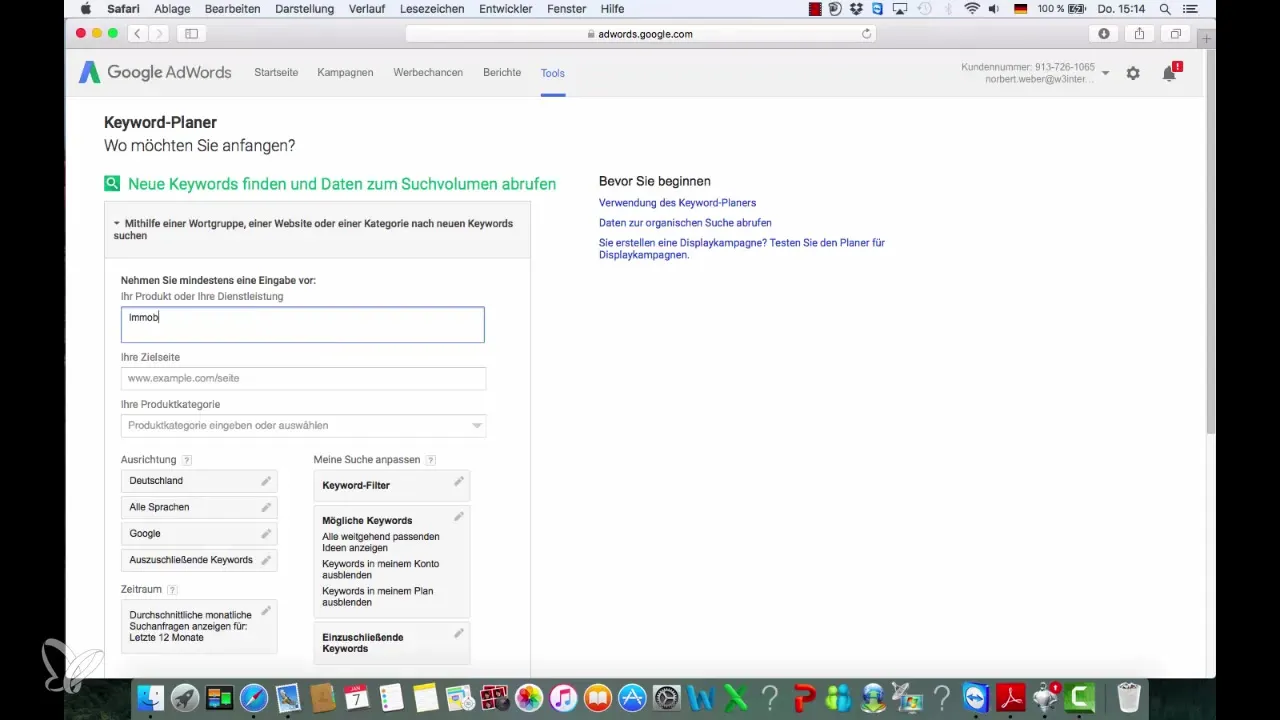
Once the search is executed, you will see the average search queries for the past 12 months. It is important to pay attention to how high the search volume is for each keyword to assess its value.
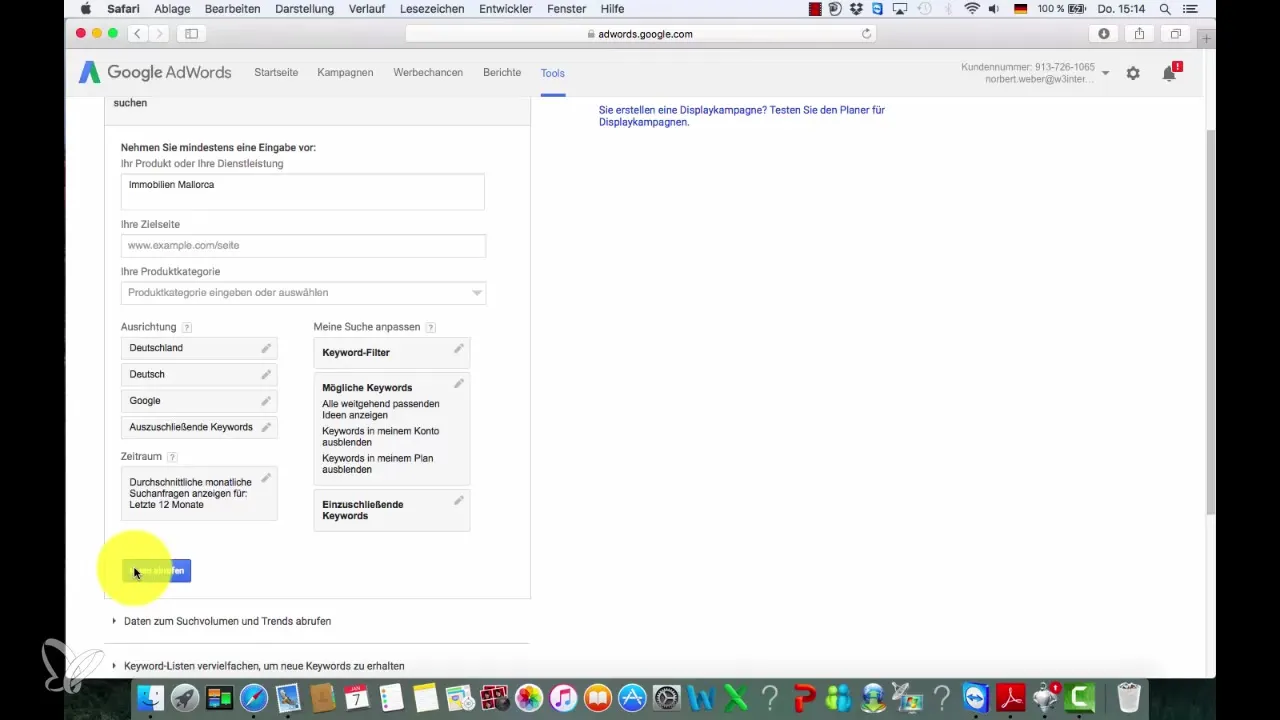
An example: The keyword "real estate Mallorca" has a high search volume but shows no buying intention. You should look for more specific phrases that imply buying intention, such as "buy real estate Mallorca."
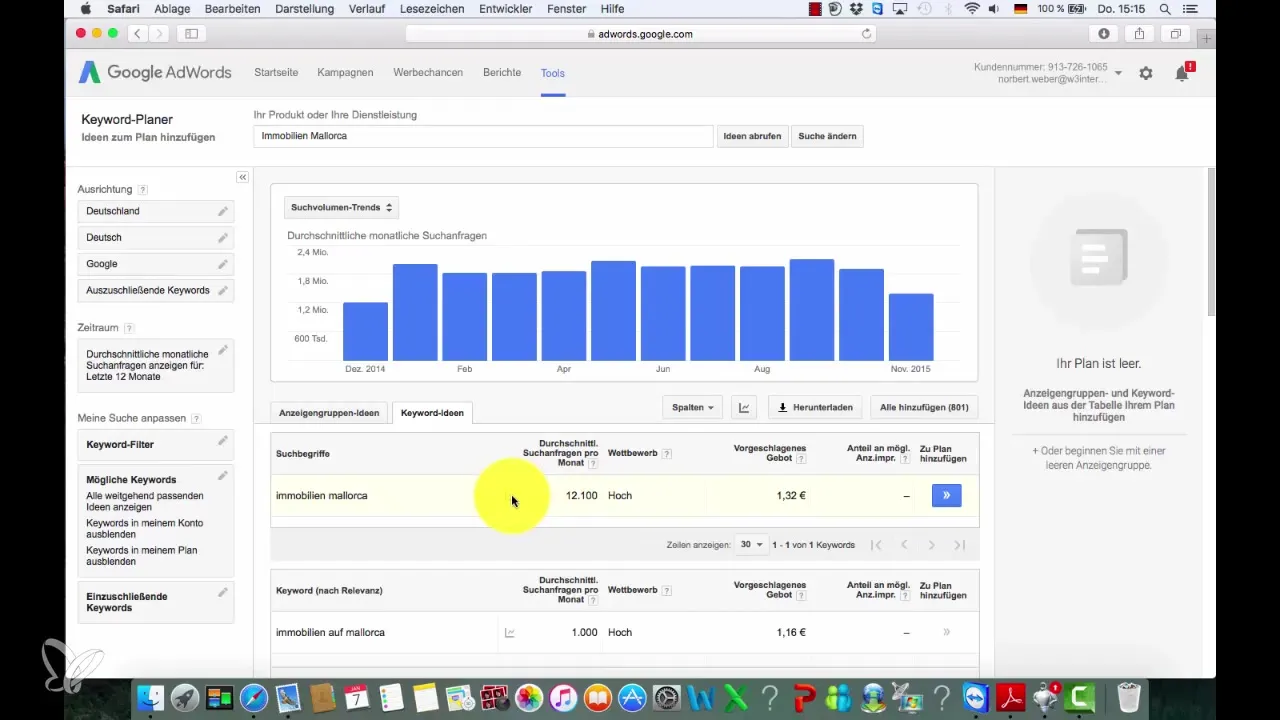
The keyword "buy real estate Mallorca" has a significantly lower search volume, but it shows that the user has a clear buying intention. Use such keywords if you want to achieve a high conversion rate.
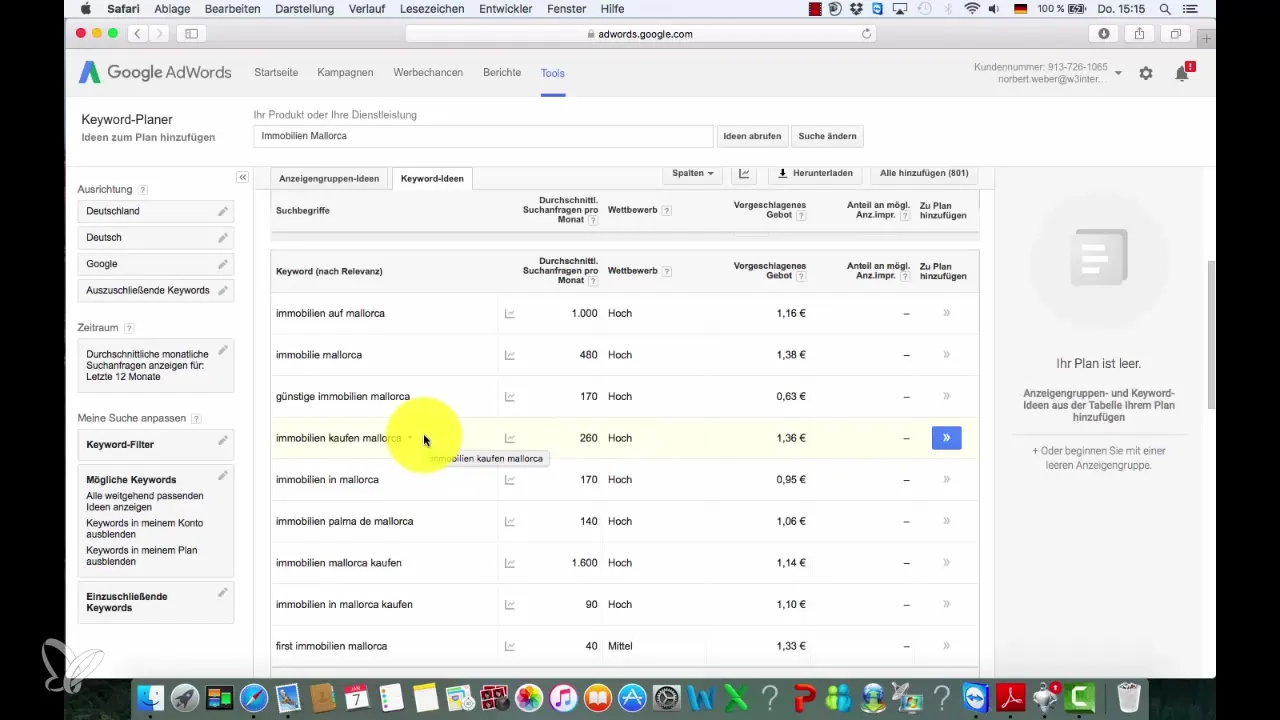
Check out more suggestions that Google offers you. Often, these cover additional buying keywords that can make sense for your campaign. Remember to treat each of these phrases as its own ad group and create tailored ads for them.
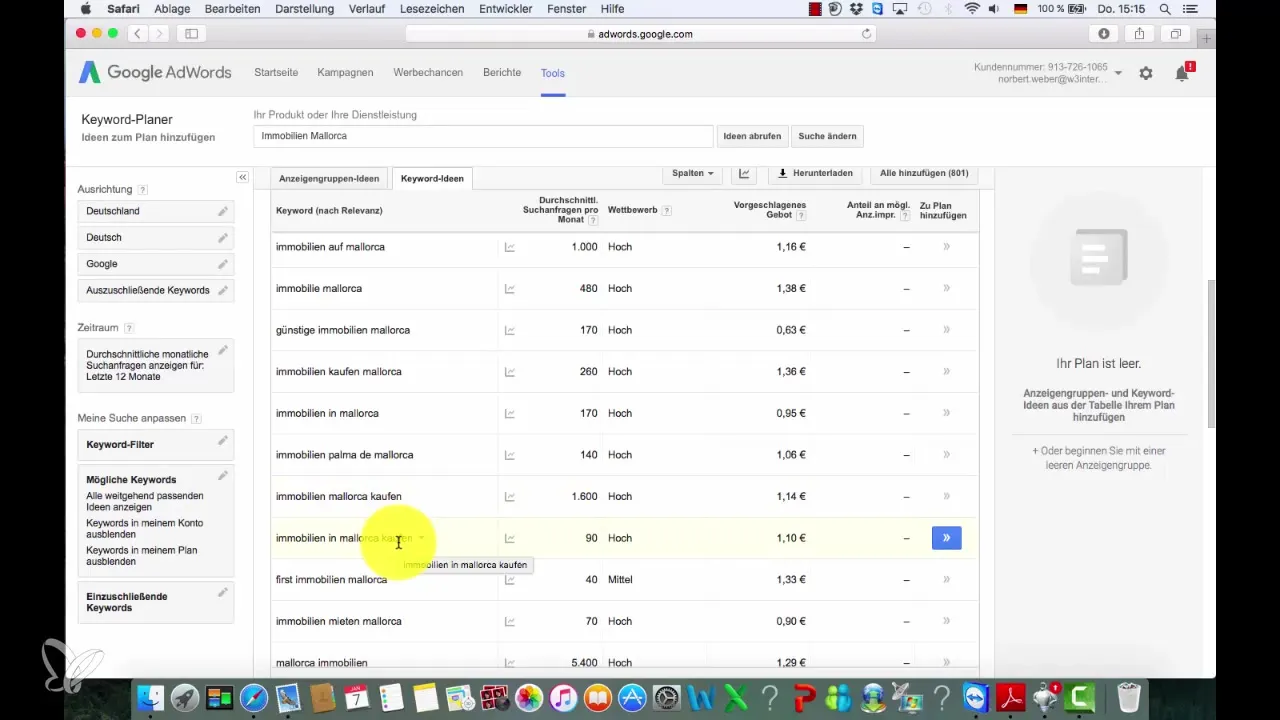
Also, look at related search queries such as "buy apartment in Mallorca". These indicate that users are interested in specific properties and are ready to act actively - whether buying or renting.
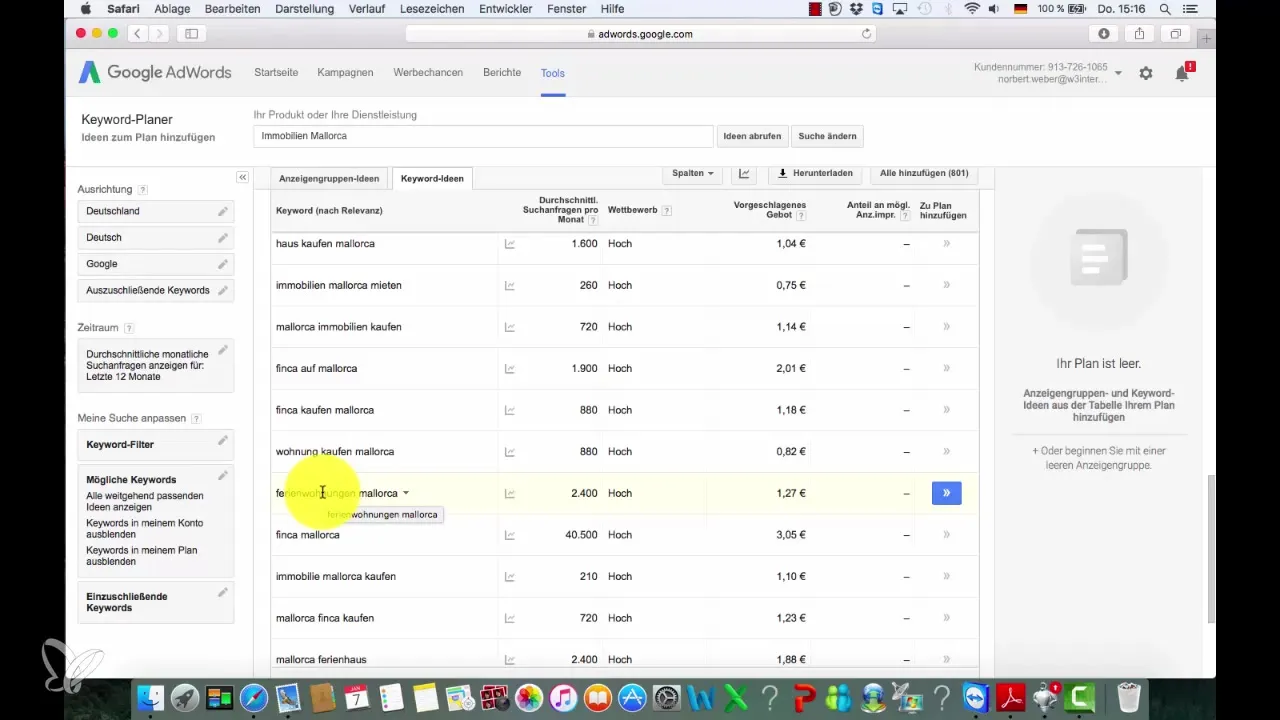
Additionally, you can view the competitive strength of the keywords in the Keyword Planner. Low competition can help you advertise for clicks at a lower cost, which directly impacts your budget.
If you find that there are several keywords you want to use, create your own ad group with a tailored ad for each keyword. The more specific your ads are, the higher the likelihood that users will actually click and convert.
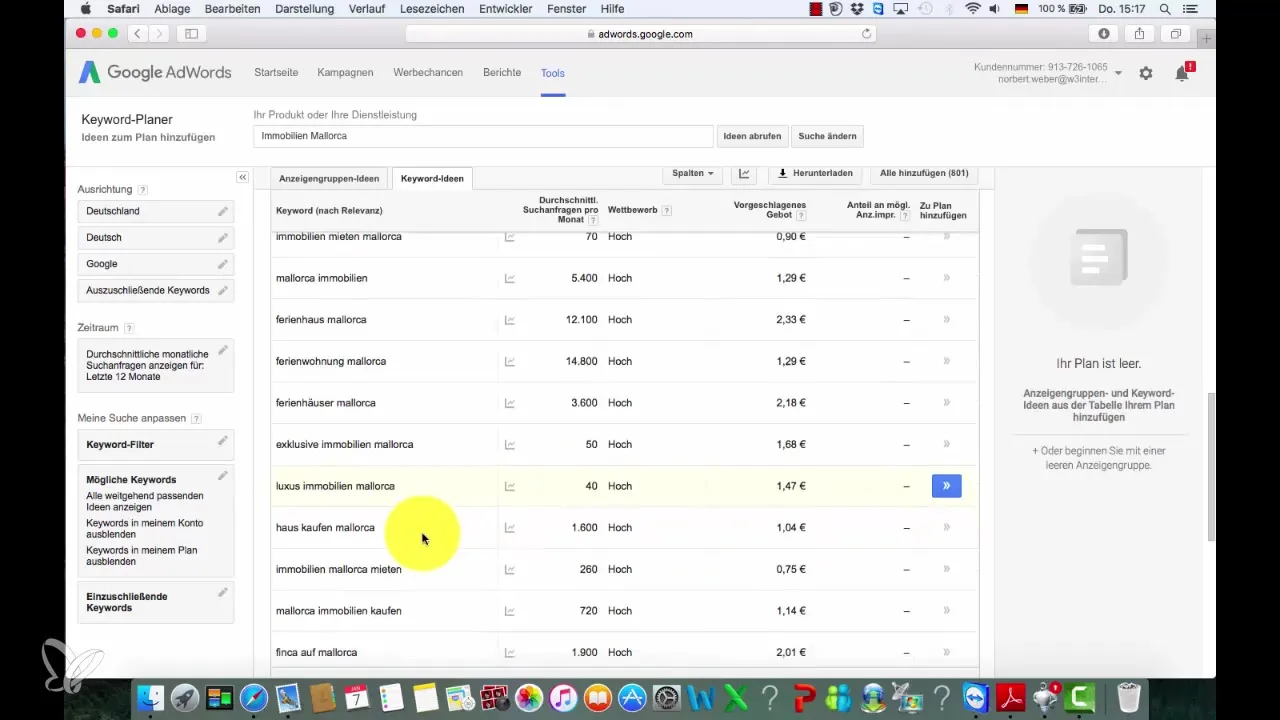
Once you have analyzed all your keywords, focus on those with buying intent. Even though these have fewer search queries, the likelihood of users taking action is higher.
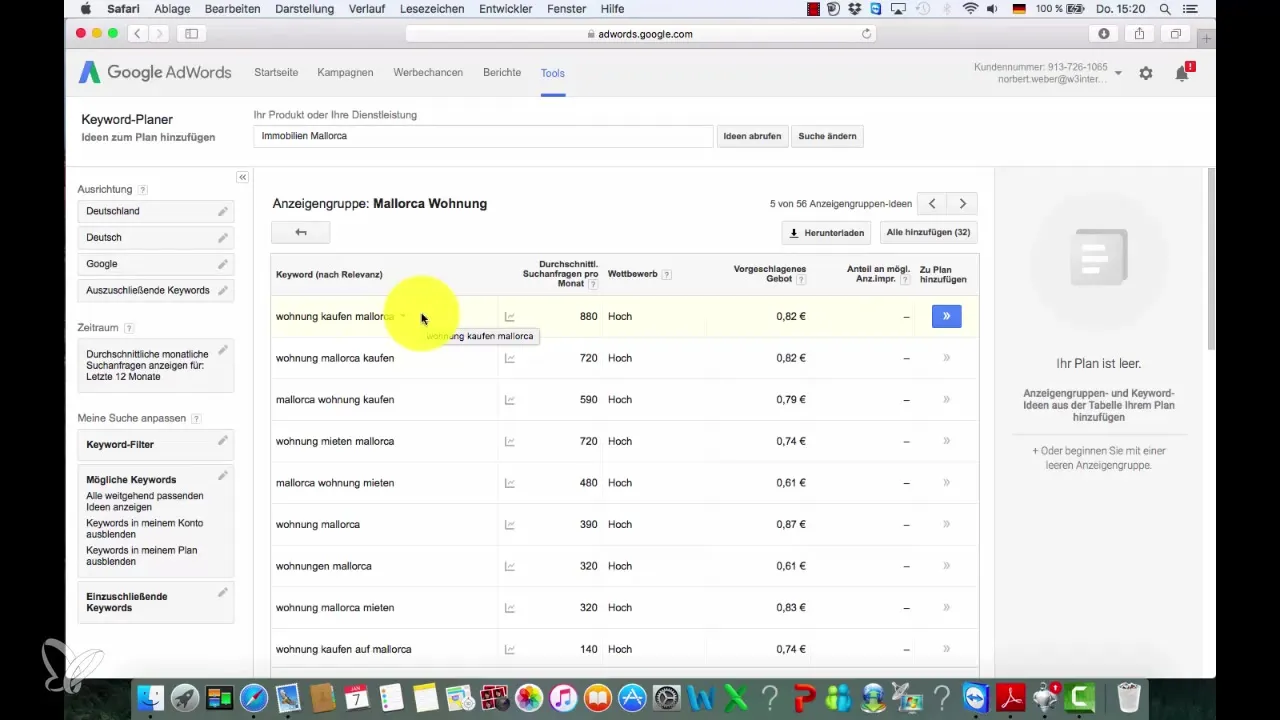
Focus on selecting the best keywords for your ads. Avoid concentrating only on keywords with high search volume, as they often offer little conversion potential.
Summary - Google AdWords: How to Find Profitable Buying Keywords with the Keyword Planner
In this guide, you learned how to effectively use the Google Keyword Planner to find buying keywords and successfully shape your Google Ads campaign. The selection process of the right keywords is crucial to avoid unnecessary costs and increase the conversion rate.
Frequently Asked Questions
What is the Google Keyword Planner?The Google Keyword Planner is a free tool from Google Ads for researching and analyzing keywords.
How do I find buying keywords?Look for keywords that imply actions like "buy" or "rent".
Should I only focus on high search volumes?No, focus on keywords with buying intent, even if their search volume is lower.
How many ad groups should I create?There should be a separate ad group with a specific ad for each relevant keyword.
What role does competition play in keyword selection?Low competition can help you save costs for clicks, thus utilizing your budget efficiently.


